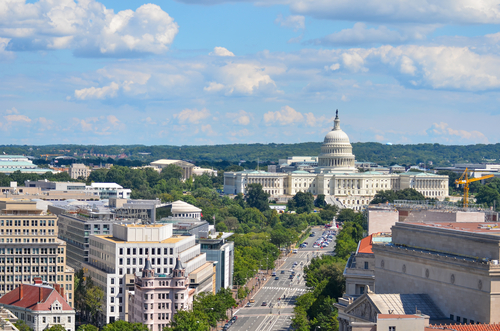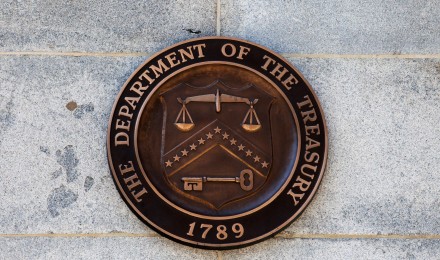Democrats and Republicans agree that something needs to take place to avoid the fiscal cliff, but with both parties unable to reach an agreement on a major issue in the debate, going over the fiscal cliff seems inevitable.
The fiscal cliff refers to year-end changes scheduled to take effect on January 1, 2013 if congress doesn’t act. Understand, however, that the fiscal cliff doesn’t refer to a single event, rather a combination of events that could possibly derail the U.S. economy. This includes spending cuts for defense and non-defense spending, the expiration of extended unemployment benefits, as well as the expiration of the Bush tax cuts. Tax increases and spending cuts will increase revenue and lower the federal deficit, but surely push the U.S. economy into a recession.
Both political parties acknowledge the possible consequences of going off the fiscal cliff, and there have been proposals to avoid the cliff. But with both parties divided on whether to extend the Bush tax cuts for everyone, an agreement doesn’t seem likely.
The Bush tax cuts refer to temporary tax cuts enacted by President Bush in 2001 and 2003. This reduction provided Americans with tax relief, and without these tax cuts, the nation would have entered a recession.
Tax cuts were set to expire at the end of 2010, but were extended an additional two years. As a new expiration date looms, the Democratic party pushes to permanently extend these tax cuts for the majority of taxpayers, but propose higher taxes for families that earn greater than $250,000 a year. If the Bush tax cuts expire for every taxpayer, income tax rates will increase from 10, 15, 28, 33 and 35 percent to 15, 25, 28, 36 and 39.6 percent. For many families, the difference in income tax rate will pose a major financial burden. This translates into less take-home pay and less money pumped into the economy.
Unfortunately, the Republican party position is quite different.
Rather than limit the extension of the Bush tax cuts to the middle class, the Republicans propose an extension for all taxpayers – including high-earners. They feel that increasing taxes for higher-income families/individuals creates an unbalanced scale. If the Bush tax cuts expired, many high-income families would see their income tax rate jump from 35 percent to 39.6 percent. Many argue that raising taxes on only 2% of the population will have little impact on lowering the federal deficit. Rather than single out a group of taxpayers, Republicans believe that tax rates should remain the same across the board, and lawmakers should seek other – and fair – ways to generate increased revenue.
As we move closer to the end of the year, future tax rates remain a mystery. At this pace, it’s unlikely that a deal will be reached by January 1, 2013. Yet, many Americans sit with their fingers crossed, hoping that both parties reach an agreement that’s fair and affordable.
Democrats and Republicans agree that something needs to take place to avoid the fiscal cliff, but with both parties unable to reach an agreement on a major issue in the debate, going over the fiscal cliff seems inevitable.
The fiscal cliff refers to year-end changes scheduled to take effect on January 1, 2013 if congress doesn’t act. Understand, however, that the fiscal cliff doesn’t refer to a single event, rather a combination of events that could possibly derail the U.S. economy. This includes spending cuts for defense and non-defense spending, the expiration of extended unemployment benefits, as well as the expiration of the Bush tax cuts. Tax increases and spending cuts will increase revenue and lower the federal deficit, but surely push the U.S. economy into a recession.
Both political parties acknowledge the possible consequences of going off the fiscal cliff, and there have been proposals to avoid the cliff. But with both parties divided on whether to extend the Bush tax cuts for everyone, an agreement doesn’t seem likely.
The Bush tax cuts refer to temporary tax cuts enacted by President Bush in 2001 and 2003. This reduction provided Americans with tax relief, and without these tax cuts, the nation would have entered a recession.
Tax cuts were set to expire at the end of 2010, but were extended an additional two years. As a new expiration date looms, the Democratic party pushes to permanently extend these tax cuts for the majority of taxpayers, but propose higher taxes for families that earn greater than $250,000 a year. If the Bush tax cuts expire for every taxpayer, income tax rates will increase from 10, 15, 28, 33 and 35 percent to 15, 25, 28, 36 and 39.6 percent. For many families, the difference in income tax rate will pose a major financial burden. This translates into less take-home pay and less money pumped into the economy.
Unfortunately, the Republican party position is quite different.
Rather than limit the extension of the Bush tax cuts to the middle class, the Republicans propose an extension for all taxpayers – including high-earners. They feel that increasing taxes for higher-income families/individuals creates an unbalanced scale. If the Bush tax cuts expired, many high-income families would see their income tax rate jump from 35 percent to 39.6 percent. Many argue that raising taxes on only 2% of the population will have little impact on lowering the federal deficit. Rather than single out a group of taxpayers, Republicans believe that tax rates should remain the same across the board, and lawmakers should seek other – and fair – ways to generate increased revenue.
As we move closer to the end of the year, future tax rates remain a mystery. At this pace, it’s unlikely that a deal will be reached by January 1, 2013. Yet, many Americans sit with their fingers crossed, hoping that both parties reach an agreement that’s fair and affordable.







